Publications
Articles, publications, books, tools and multimedia features from the U.S. Institute of Peace provide the latest news, analysis, research findings, practitioner guides and reports, all related to the conflict zones and issues that are at the center of the Institute’s work to prevent and reduce violent conflict.
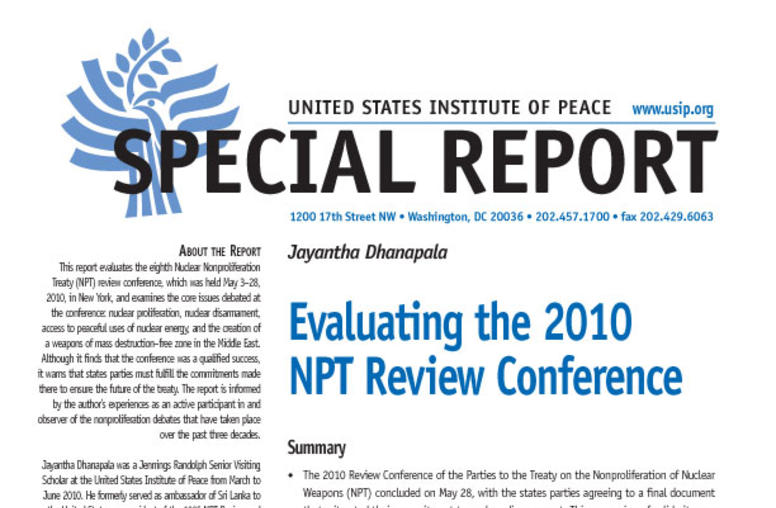
Evaluating the 2010 NPT Review Conference
This report evaluates the eighth Nuclear Nonproliferation Treaty (NPT) review conference, which was held May 3–28, 2010, in New York, and examines the core issues debated at the conference: nuclear proliferation, nuclear disarmament, access to peaceful uses of nuclear energy, and the creation of a weapons of mass destruction–free zone in the Middle East.
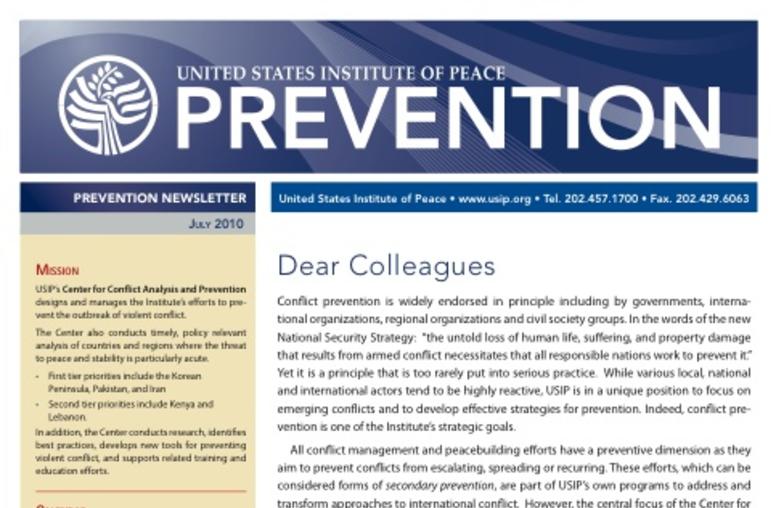
USIP Prevention Newsletter - September 2010
The bimonthly Prevention Newsletter provides highlights of CAP's conceptual work, its region specific work aimed at helping to prevent conflicts in Africa, the Middle East, South and Northeast Asia, and the special projects on genocide prevention and nonproliferation. It also provides Over the Horizon thinking on trends in different regions, as well as CAP events, working groups and publications.
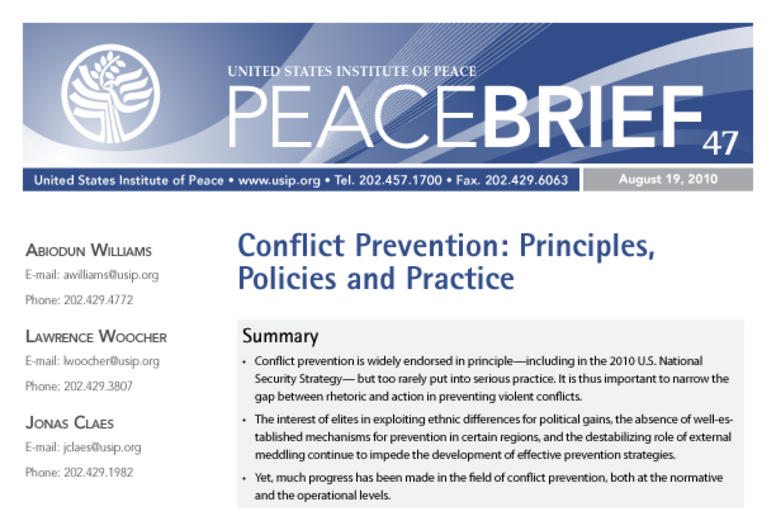
Conflict Prevention: Principles, Policies and Practice
On July 1, 2010, the U.S. Institute of Peace organized an all-day conference entitled "Preventing Violent Conflict: Principles, Policies, and Practice." The goals of this conference were to spotlight the importance of conflict prevention, to foster productive discussions between leading scholars and distinguished practitioners, and to identify priority areas for future work on conflict prevention by the Institute and the field at large. This Peace Brief provides an overview of that day's disc...
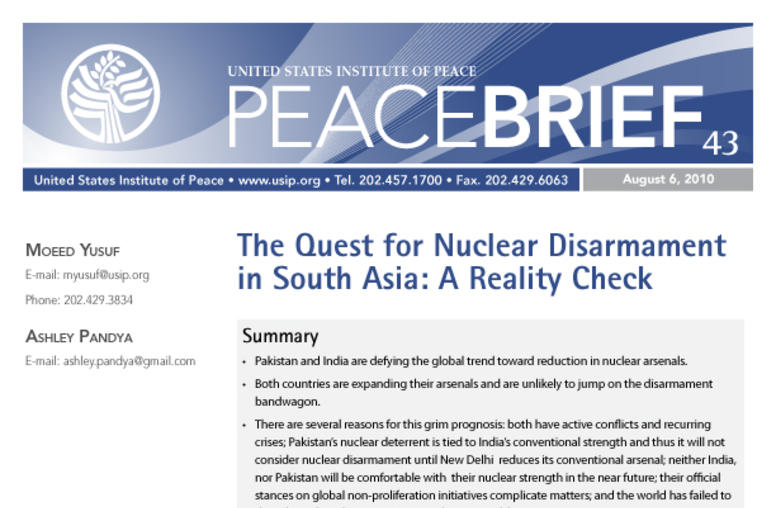
The Quest for Nuclear Disarmament in South Asia: A Reality Check
Pakistan and India are defying the global trend toward reduction in nuclear arsenals. This Peace Brief looks at several reasons for this prognosis.
Science Diplomacy for Conflict Prevention
The Center of Innovation for Science, Technology, and Peacebuilding is evaluating the potential for international scientific and technical collaborations to aid in conflict prevention and resolution.
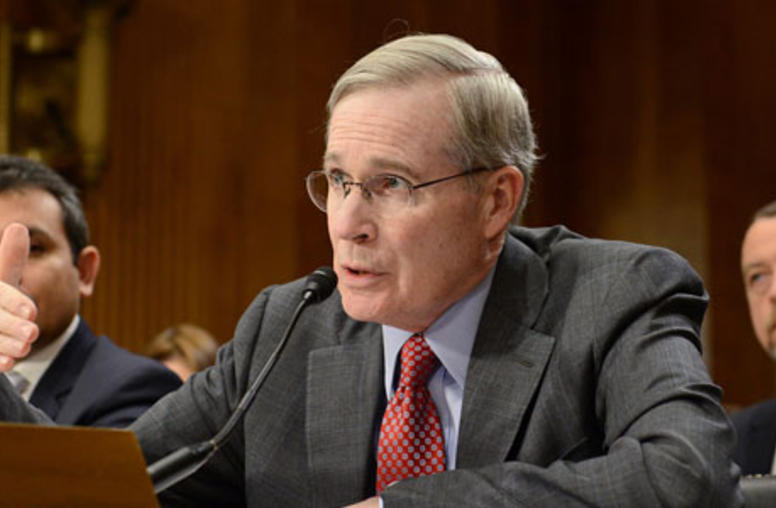
Stephen J. Hadley Testifies on the New START Treaty
Stephen J. Hadley, senior adviser for international affairs, testified before the Senate Committee on Foreign Relations on the new START Treaty on June 10, 2010.
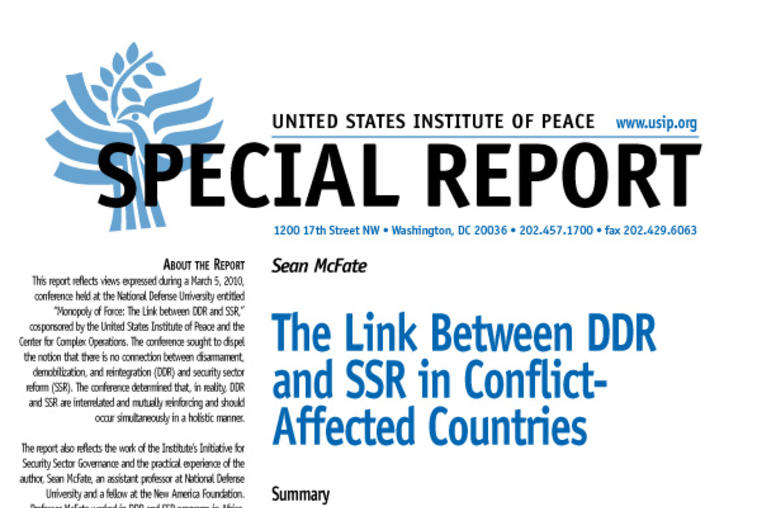
The Link Between DDR and SSR in Conflict-Affected Countries
Summary Disarmament, demobilization, and reintegration (DDR) and security sector reform (SSR) processes should be interrelated and mutually reinforcing. As DDR and SSR share the same objective--consolidation of the state’s monopoly of force to uphold the rule of law--they succeed or fail together and should be planned, resourced, implemented, and evaluated in a coordinated manner. The natural point of intersection for DDR and SSR is in the reintegration phase, as many ex-combatants find...
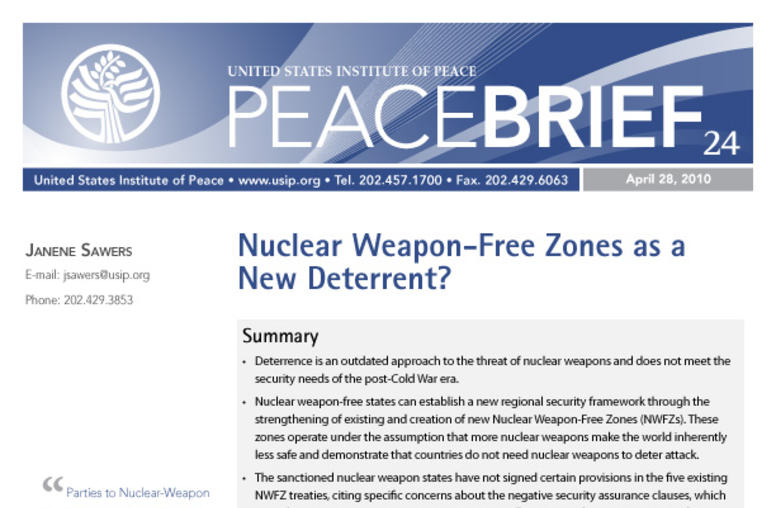
Nuclear Weapon-Free Zones as a New Deterrent?
Nuclear weapon-free states can establish a new regional security framework through the strengthening of existing and creation of new Nuclear Weapon-Free Zones (NWFZs). These zones operate under the assumption that more nuclear weapons make the world inherently less safe and demonstrate that countries do not need nuclear weapons to deter attack.
The Sinking of South Korea’s Naval Vessel
The Cheonan, a 1,200-ton South Korean naval vessel, sank on March 26 when an explosion split it apart in one of the country’s worst naval disasters. North Korea has officially denied involvement and accused South Korean President Lee Myung-bak of using this tragedy to bolster support for his hard-line North Korea policy.
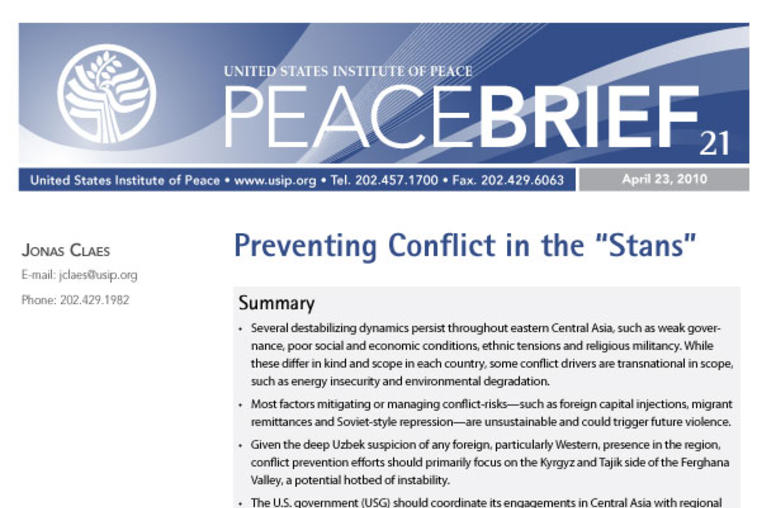
Preventing Conflict in the "Stans"
Several destabilizing dynamics persist throughout eastern Central Asia, such as weak governance, poor social and economic conditions, ethnic tensions and religious militancy. While these differ in kind and scope in each country, some conflict drivers are transnational in scope, such as energy insecurity and environmental degradation.